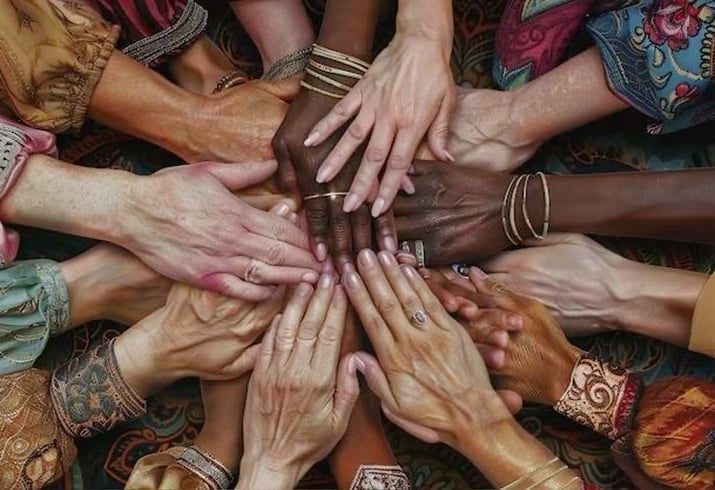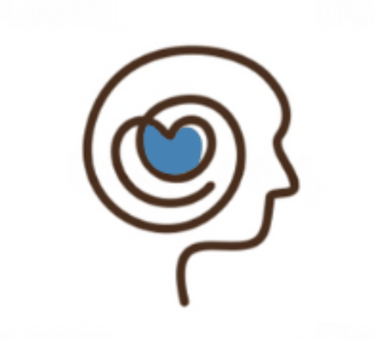"You're So American": The Impact of Culture on Immigrant Children's Mental Health
Second-generation immigrants have it really rough, especially when your parents, aunts, uncles, and distant relatives constantly try to guilt-trip you for not being as connected to your culture as they are. You aren’t alone. Join me as I go over my own experience with cultural alienation, how it affects an individual’s mental health, and some coping strategies I like to use!
Ramneet Sidhu
7/18/20254 min read


Being the children of an immigrant is no easy thing—a fact I’m sure many teens can resonate with. Aunts and uncles from both sides of the family pester us constantly about every topic under the sun. When will we learn our language? When will we marry someone in our culture? Why do we prefer other cultures’ food? Why are you so different? This can be especially hard for teens who aren’t particularly close with their ethnicity or culture, and who feel alienated by each backhanded comment from an uncle you haven’t seen since you were less than 10 weeks old. In this article, I hope to provide some more insight into how this can negatively impact an immigrant child’s mental health and some ways to cope.
My Experience With Cultural Alienation
As a child of immigrants, paired with the fact that I’m the only person in my family born in America, I’d like to say I have a pretty personal relationship with the feeling of being isolated from my family’s customs. Being Sikh and from a very conservative, religious family, I’ve always felt a certain weight on my shoulders when it came to discussions around my identity. I don’t know my language, despite my parents’ many attempts to get me to learn through Sunday school—and as much as I hate to admit it, I was never really interested in learning it, either. Being older and more mature, I regret my decision and my reluctance to learn my language, which is something I try to undo everyday. This isn’t just with language, either—every holiday, every cultural celebration, every stereotype I see on Instagram or Tiktok about Indian people, every time I brush my hair that I’m not allowed to cut, I feel the weight of cultural alienation getting worse, which is a feeling a lot of immigrant children deal with when they weren’t raised in a household that put a lot of emphasis on being connected to their lifestyle when they were younger. It’s hard, and even harder when parents tend to put a lot of the blame on the child themselves for “not being motivated enough”, for “being too lazy”, or for “being too [insert other culture here]”. All that being said, cultural alienation has a huge impact on a second-generation immigrant’s mental health, which I’ll get into next.
The Impact on Mental Health
Cultural alienation is never pleasant, which I’m sure many of us can attest to. Not only can an individual feel separate from their ethnic identity, but they can feel separate from their own family, and from their friends in the same culture or who practice the same lifestyle as them, which can lead to even more major problems in the future. According to the American Psychology Association, in their article “The Risks of Social Isolation” by Amy Novotney, Novotney states, “As demonstrated by a review of the effects of perceived social isolation across the life span, co-authored by Hawkley, loneliness can wreak havoc on an individual’s physical, mental and cognitive health (Philosophical Transactions of the Royal Society B, Vol. 370, No. 1669, 2015). Hawkley points to evidence linking perceived social isolation with adverse health consequences, including “depression, poor sleep quality, impaired executive function, accelerated cognitive decline, poor cardiovascular function, and impaired immunity at every stage of life…” Social isolation can be especially exacerbated when cultural isolation enters the equation, making coping strategies especially important to prevent the aforementioned symptoms.
Coping Strategies
Here, I’ve compiled a small list of strategies that have helped me with my own declining mental health as a response to cultural alienation:
1. Ask your family to do more bonding involving your culture
Expressing interest in learning more about your culture and lifestyle can help bridge any emotional gaps you may be feeling in your family, and can help to start rebuilding any connections you may feel like you could have lost in response to your feelings of isolation.
2. Make friends within your ethnic group who can help you learn
While it may seem difficult to make friends with people who you don’t feel connected to on a cultural level, having people in your ethnic group as close friends can help you feel like you’re more emotionally connected to your family’s customs and lifestyle. There will always be someone willing to help you and teach you; it’s all about being open and willing to learn.
3. Read up on other people’s experiences with cultural alienation
Knowing other people’s own stories when it comes to feeling isolated with their culture can help you formulate your own specific coping strategies. Just because these tips worked for me doesn’t mean they’ll work for you, and having friends/family or seeing other people’s experiences on social media can aid you in your journey to become more connected with your ethnicity’s values in a way that is most comfortable for you.
4. Understand that what you’re feeling is normal and completely valid
Feeling distanced from your way of life is tough, and can make it hard to want to even try closing that gap. More people go through these feelings than they’d like to admit—it can feel embarrassing and shameful to not know your own language, to not know the importance of a custom or of a holiday, but just because no one likes admitting it doesn’t mean you’re alone in feeling that way. It’s okay to not know everything, it’s okay to not want to learn anything—it’s all about what you value and what you prioritize, no matter what anyone wants to say to you, whether it’s a family member, a judgmental friend, a distant relative, or even a stranger on the sidewalk. Always do what’s best for you, and remember that you aren’t alone, and there are people in your life who will always support you and the life you choose to live.
Sources:
